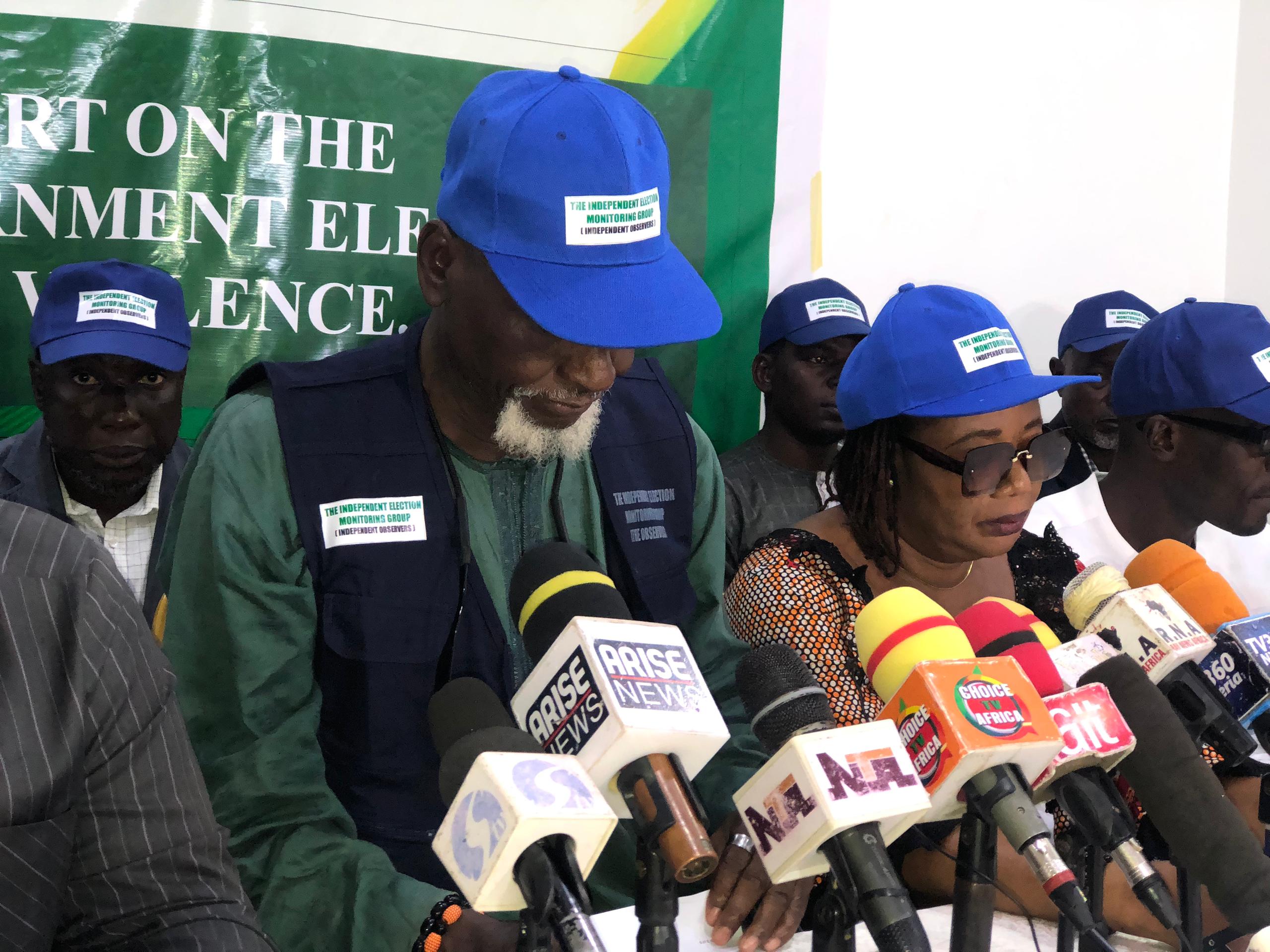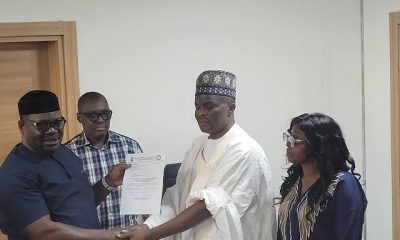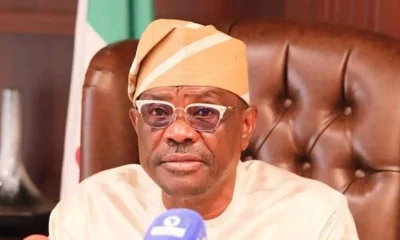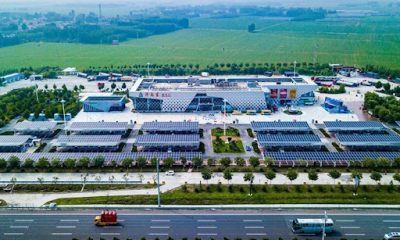Uncategorized
Dialogues, consultation have strength in resolving conflicts
By Huan Yuping, People’s Daily
Saudi Arabia and Iran recently signed a joint statement in Beijing, with which the two countries announced the resumption of diplomatic relations.
Since they held talks in Beijing in March, the two sides have made new strides in improving bilateral relations in accordance with the roadmap and timetable laid out in their Beijing agreement.
The improved ties between the two countries are believed to be a significant matter of the evolving international relations today, which not only opened a path for peace and stability in the Middle East and set an important example for countries to use dialogue and consultation to resolve their conflicts and differences, but also demonstrate how major countries should responsibly resolve international hotspot issues and safeguard world peace.
The international community gave high recognition to the important results achieved in the Beijing agreement between Saudi Arabia and Iran, believing that the agreement marked an important step of turning conflicts in the Middle East into reconciliation.
The major diplomatic breakthrough is constantly releasing its positive influence, creating new opportunities for the political resolution of regional hotspot issues. “Ice-breaking dialogues” have frequently made the headlines in the Middle East.
This fully proves that the Middle East, a region torn by wars and turbulence, aspires to peace and security. The will and capability of countries in the region to safeguard peace and security through enhancing solidarity and coordination are on a rise.
Ezzat Saad, director of the Egyptian Council for Foreign Affairs, noted that people in the Middle East have long suffered from wars and they long for peace. Seeking peace and development has become a mainstream voice of regional countries especially in the recent years, the director added.
Countries in the Middle East should keep the future and destiny of the region firmly in their own hands, which is conducive to the peace and stability in the Middle East and the world at large.
However, the reaction of a few major countries to the improved ties between Saudi Arabia and Iran is completely different from that of most countries in the world. In an unannounced visit to Saudi Arabia earlier this month, William Burns, director of the Central Intelligence Agency, aired Washington’s “frustration” at being left out of regional developments after Riyadh moved to restore ties with Iran and Syria, according to The Wall Street Journal. He reiterated that Iran and Syria are still under heavy sanctions from the United States.
The U.S. “frustration” is not surprising at all. German daily newspaper Junge Welt said that Washington is not seeing any benefits from the improved ties between Saudi Arabia and Iran, and the Beijing agreement between the two countries will make it more difficult for the United States to implement the “divide and rule” tactics in the Middle East.
The United States has long taken the Middle East as a strategic chessboard, on which regional countries are all viewed by it as chess pieces. Stoking tensions and creating divisions, it is a major source of turbulence in the Middle East.
A recent article published on The Guardian about the 20th anniversary of the U.S.-led invasion of Iraq noted that the “war on terror” provided political cover for the further pursuit of supremacy, and the political system planted in Iraq by Washington has intensified divisions and made it practically ungovernable.
The international community is highly alert to the U.S. practices of stoking conflicts and benefiting from them. Its awareness of maintaining strategic independence is rising. The improved relations between Saudi Arabia and Iran well proves this. The more solidarity the countries in the Middle East have, the less space there will be for external forces to pursue offshore balance, divide and rule, and maintain hegemony and private interests.
On a renowned question-and-answer website, a user asked why China was able to broker a truce between Saudi Arabia and Iran while the U.S. failed to do such a thing. An answer winning a lot of upvotes noted that China likes peace but the U.S. doesn’t want it.
Military force is not a solution, and zero-sum game can never bring lasting peace. Upholding dialogues and strengthening communication holds the key to resolving differences. Only results achieved from equal consultation are the most sustainable.
Following the Beijing agreement between Saudi Arabia and Iran, a foreign media outlet pointed out that dialogues are the most powerful weapon, which helps achieve peace better than however many troops. All relevant parties have seen the new hope to resolve international hotspot issues from the Chinese philosophy and actions that prioritize dialogues, diplomacy and peace.
China advocates the Global Security Initiative (GSI), calls on countries to adapt to the profoundly changing international landscape in the spirit of solidarity, and champions the win-win mindset to address the complex and intertwined security challenges, so as to eliminate the root causes of international conflicts and improve global security governance. The Beijing agreement just marked a successful practice of the GSI.
Major countries shoulder special responsibility for world peace and stability. They should always use their resources and strength to promote dialogues and reconciliation, rather than the other way around.
Egyptian newspaper Al-Ahram said the Beijing agreement heralded the birth of the Chinese solution based on peace and understanding, adding that China is committed to seeking common ground while putting differences aside and to safeguarding common interests. It said the Chinese solution was obviously fairer and better for handling international and regional issues compared with U.S. approaches of seeking interests by provoking troubles and wars.
Factors of instability, uncertainty and insecurity are increasing in the international situation. The reconciliation between Saudi Arabia and Iran told the world that constructive dialogues and peace talks are the best approach to resolving conflicts and promoting peace. No matter how complex the issues are or how thorny the challenges may be, equal-footed dialogue on the basis of mutual respect will lead to a mutually acceptable solution. To resolve differences and conflicts through
Uncategorized
Form I-130 Approved: A Step-by-Step Guide to the Next Stages
Obtaining approval of Form I-130, Petition for Alien Relative is one of the key milestones in the immigration process. It unveils the process of the next moves in order to bring your loved one to the United States of America. Perhaps they are in the United States or perhaps they are in another country. It is crucial to know what comes next. Alright, let’s define the most crucial questions you may have.
What to do after Form I-130 is approved
It takes several months, after which USCIS will send you a notice that your Form I-130 has been approved. In case your relative resides in another country other than the United States the case will be taken to the National Visa Center (NVC). If they are in the U.S, whether to apply for adjustment of status or to go through consular processing is the next step to be taken.
All the applicants apart from those in the USA will have their case numbers allocated to them by the NVC together with instructions. This encompasses paying fees and completing the form I-130 Petition alien relative and the DS-260 form called the Immigrant Visa and Alien Registration Application. It is important that you be responsive to emails, at least to the official ones to check for updates.
If your relative is in the U.S., you will proceed filing Form I-485, Application to Register Permanent Residence or Adjust Status.
How to apply for Adjustment of Status if you are in the US
Adjustment of Status (AOS) enables Your Relative to get an LPR status without having to travel out of the country. Here’s how to navigate this process:
- Check Eligibility: This should guarantee that the beneficiary is in the United States legally and meets all the requirements of the program.
- File form I-485: Complete and file Form I-485 (Application to Register Permanent Residence or Adjust Status) which is used in changing of immigration status to that of a permanent resident. A general rule of thumb to reduce delay as much as possible is to lay as much accuracy as possible from the onset of the project.
- Gather Required Documents: Most organizations require that you submit some documents Among the documents include:
- Form I-130 approval notice.
- Passport and current visas.
- The form with the name Arrival/Departure Record, also known as I-94.
- Two passport-style photos.
- The results of the medical examination are contained in form I-693.
- Evidence of a relationship with the U.S. citizen or a permanent resident.
- Pay the Fees: The costs associated with a Form I-485 depend on the applicant’s age and other factors of his/her personal situation. Make sure you submit your application with the right fee.
- Attend the Biometrics Appointment: Applicants are required to submit the application and after some time, USCIS will reschedule for fingerprint and photos to be taken. Attendance is crucial.
- Prepare for the Interview: Nevertheless, most applicants will have to go for an interview at a local office of the USCIS. Check your application and gather whatever proof to support your case that you can.
How to apply for consular processing if you are outside the US
For the beneficiaries residing in other countries they then undergo consular processing. Here’s how to handle this process:
- Wait for NVC Notification: Once the I-130 has been approved you will be contacted with a case number and additional directives from NVC.
- Pay Fees and Submit DS-260: When the applicant receives a case number, they should then process the immigrant visa processing fees and fill the Form DS-260.
- Gather Supporting Documents: Gather different documents in order of, barring the letters:
- Your passport, which must be valid for at least six months of the intended stay.
- Birth certificate.
- Police certificates.
- Medical examination results.
- Affidavit of Support or the specific form used for it is I-864.
- Attend the Visa Interview: The last stage is the Visa interview that takes place at a US embassy or a consulate. They should not lie, and they should be ready or willing to answer questions about their relationship and their background.
- Receive Your Visa: When granted you get a stamp on your passport through which you can be able to travel to the United States of America.
It is often not easy to know what to do after Form I-130 has been approved, however it’s important to be informed and organized. No matter whether you are changing your status within the territory of the United States or opting for consular processing, it is important to know what steps to take in order to reach the desired end. The receipt of a green card. Be as organized as you can, keep record of the documents and when necessary, seek legal help. All the best on this great adventure that lies ahead of you!
Uncategorized
Awe Progressive Group Urges Gov. Sule to Consider Hamza Moyi for LGA Chairmanship
From Leo Zwànke, Lafia
Awe Local Government Area Progressive Group has called on the Governor of Nasarawa State, Engineer Abdullahi Sule, to consider Hon. Hamza Ibrahim Moyi for the position of Chairman of the Awe Local Government Council. This appeal comes as the governor and the All Progressives Congress (APC) State Working Committee are set to decide on the candidate for the chairmanship post.
In a press release signed by the group’s spokesperson, Muhammed Musa on Saturday and sent to journalist, the group highlighted Moyi’s contributions to the development of Awe Local Government Area in his capacity as the Senior Special Assistant (SSA) to the governor on Sports. According to Musa, Moyi’s name is among the three submitted for consideration by the governor.
The statement commended Moyi’s dedication to the local government, particularly in areas such as security, education, healthcare, agriculture, and infrastructural development. The group believes that his track record makes him the best fit for the position of council chairman.
“Hon. Hamza Ibrahim Moyi has worked tirelessly as the SSA to the governor, ensuring that Awe Local Government remains secure and that development projects are carried out effectively. His efforts in the areas of education, health, and agriculture have had a direct and positive impact on the people of the local government,” the statement read.
The group further emphasized that Moyi’s leadership has played a pivotal role in fostering peace and stability within the local government, particularly in addressing security challenges that have affected the area in the past.
“We appeal to His Excellency, Governor Abdullahi Sule, to recognize the efforts of Hon. Moyi and give him the opportunity to serve as the Chairman of Awe Local Government Council. His experience, dedication, and commitment to the progress of our local government make him the ideal candidate for this position,” the statement added.
The group expressed confidence that Moyi’s leadership would bring further development to Awe LGA and strengthen its role within the state.
The decision on the chairmanship is expected to be made soon as political activities in Nasarawa State gear up ahead of the local government council elections.
Uncategorized
Rivers LG Polls: Observers Blame Gov Fubara’s Use Of Non-State Actors for Post-Election Violence ***Exonerate Police of Any Wrongdoing Independent observers have condemned the violence and arson that marred the Rivers State local government elections, blaming Governor Siminalayi Fubara’s supporters for the chaos. The Independent Election Monitoring Group, in its preliminary report, cited widespread irregularities, including the lack of election materials, non-use of electoral registers, and dubious declaration of results. Speaking at a press conference, Executive Director, Dr. Emmanuel Agabi, said Governor Fubara’s insistence on conducting the elections despite court rulings and security concerns has been criticized as a desperate bid to consolidate power. Notably, the report cleared the Nigerian Police of any wrongdoing, highlighting their withdrawal from the election due to a Federal High Court ruling. The report recommends a full investigation into the arson attacks, nullification of election results, deployment of federal security forces, and dialogue between the governor and opposition parties. According to the report, the use of violence by Fubara’s supporters in the wake of the election reflects the Governor’s desperation to suppress opposition and maintain control of the political narrative. By allowing his supporters to engage in such acts of violence, it added that Fubara has contributed to the breakdown of law and order in Rivers State. “The Rivers State local government elections and the subsequent acts of arson represent a low point in the state’s political history,” the report said. “Obviously , the state local government elections have exposed the fragility of the democratic process in the state. “Governor Siminalayi Fubara’s determination to consolidate political power through the Action Peoples Party (APP) and disregard for legal rulings has led to a crisis that threatens both the democratic fabric of Rivers State and the security of its citizens. “The refusal to honor court rulings, combined with the manipulation of electoral processes and violent suppression of opposition, demonstrates a clear disregard for the rule of law. “It is evident that Governor Fubara’s supporters, driven by his desperation to build and secure a political stronghold, are responsible for the violence and destruction that followed the elections. “The state’s political crisis will only worsen if urgent steps are not taken to restore order, accountability, and respect for democratic principles. “The use of arson as a tool for political intimidation is not only reprehensible but dangerous, as it has the potential to escalate into broader conflict. If unchecked, this pattern of governance could erode what remains of democratic practice in Rivers State. “It is therefore imperative that Governor Fubara and his administration give peace a chance by embracing dialogue, respecting court rulings, and adhering to democratic norms. “The Governor must realize that power, when pursued at the expense of the people’s trust and the rule of law, is unsustainable. “For the future of Rivers State, and indeed Nigeria’s democratic experiment, it is crucial that stakeholders at all levels work together to address the deep-seated issues that have emerged from this election. “This includes reforming the electoral system, ensuring accountability for violent actions, and fostering a political culture where power is gained through the people’s will, not through coercion, manipulation, or violence. “In the words of former President Goodluck Jonathan, the political crisis in Rivers State is reminiscent of the crisis in the old Western region. It is a warning sign of what could become a larger national issue if the political situation in Rivers State is not addressed. “It is the responsibility of all concerned parties, including the federal government, to intervene and ensure that Rivers State does not spiral into anarchy. Only through collective action can the state be returned to peace, stability, and genuine democratic governance.”

***Exonerate Police of Any Wrongdoing
Independent observers have condemned the violence and arson that marred the Rivers State local government elections, blaming Governor Siminalayi Fubara’s supporters for the chaos.
The Independent Election Monitoring Group, in its preliminary report, cited widespread irregularities, including the lack of election materials, non-use of electoral registers, and dubious declaration of results.
Speaking at a press conference, Executive Director, Dr. Emmanuel Agabi, said Governor Fubara’s insistence on conducting the elections despite court rulings and security concerns has been criticized as a desperate bid to consolidate power.
Notably, the report cleared the Nigerian Police of any wrongdoing, highlighting their withdrawal from the election due to a Federal High Court ruling.
The report recommends a full investigation into the arson attacks, nullification of election results, deployment of federal security forces, and dialogue between the governor and opposition parties.
According to the report, the use of violence by Fubara’s supporters in the wake of the election reflects the Governor’s desperation to suppress opposition and maintain control of the political narrative.
By allowing his supporters to engage in such acts of violence, it added that Fubara has contributed to the breakdown of law and order in Rivers State.
“The Rivers State local government elections and the subsequent acts of arson represent a low point in the state’s political history,” the report said.
“Obviously , the state local government elections have exposed the fragility of the democratic process in the state.
“Governor Siminalayi Fubara’s determination to consolidate political power through the Action Peoples Party (APP) and disregard for legal rulings has led to a crisis that threatens both the democratic fabric of Rivers State and the security of its citizens.
“The refusal to honor court rulings, combined with the manipulation of electoral processes and violent suppression of opposition, demonstrates a clear disregard for the rule of law.
“It is evident that Governor Fubara’s supporters, driven by his desperation to build and secure a political stronghold, are responsible for the violence and destruction that followed the elections.
“The state’s political crisis will only worsen if urgent steps are not taken to restore order, accountability, and respect for democratic principles.
“The use of arson as a tool for political intimidation is not only reprehensible but dangerous, as it has the potential to escalate into broader conflict. If unchecked, this pattern of governance could erode what remains of democratic practice in Rivers State.
“It is therefore imperative that Governor Fubara and his administration give peace a chance by embracing dialogue, respecting court rulings, and adhering to democratic norms.
“The Governor must realize that power, when pursued at the expense of the people’s trust and the rule of law, is unsustainable.
“For the future of Rivers State, and indeed Nigeria’s democratic experiment, it is crucial that stakeholders at all levels work together to address the deep-seated issues that have emerged from this election.
“This includes reforming the electoral system, ensuring accountability for violent actions, and fostering a political culture where power is gained through the people’s will, not through coercion, manipulation, or violence.
“In the words of former President Goodluck Jonathan, the political crisis in Rivers State is reminiscent of the crisis in the old Western region. It is a warning sign of what could become a larger national issue if the political situation in Rivers State is not addressed.
“It is the responsibility of all concerned parties, including the federal government, to intervene and ensure that Rivers State does not spiral into anarchy. Only through collective action can the state be returned to peace, stability, and genuine democratic governance.”
-

 Business12 hours ago
Business12 hours agoOkpella Monarch: Obaseki Ratified Kingmakers Decision, End 5years leadership Vacuum
-

 News23 hours ago
News23 hours agoDemolition: Press Under Siege As Taraba Govt Issues Ban Memo
-

 Banking8 hours ago
Banking8 hours agoFree Food Saga: Akpabio quoted out of context-CSO
-

 Foreign12 hours ago
Foreign12 hours agoSci-tech innovation fuels China’s high-quality development
-

 Business5 hours ago
Business5 hours agoWike Urges Nigerians to Pay Taxes for Improved Social Services
-

 Foreign12 hours ago
Foreign12 hours agoSWChina’s Guizhou builds itself into computing power base serving whole country
-

 Foreign6 hours ago
Foreign6 hours agoQinling Mountains better safeguarded with comprehensive digital platform
-

 Foreign6 hours ago
Foreign6 hours agoExpressway service station in Shandong achieves carbon neutrality








